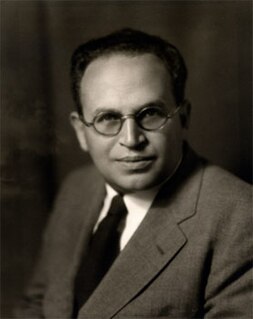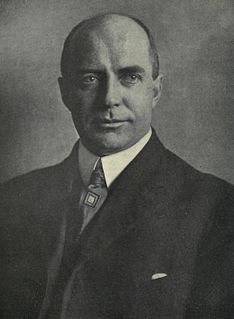Life history is an interviewing method used to record autobiographical history from an ordinary person's perspective, often gathered from traditionally marginalized groups. It was begun by anthropologists studying Native American groups around the 1900s, and was taken up by sociologists and other scholars, though its popularity has waxed and waned since. One of the major strengths of the life history method is that it provides a kind of voice from a social milieu that is often overlooked or indeed invisible in intellectual discourse.

Qualitative psychological research is psychological research that employs qualitative methods.

Qualitative research relies on data obtained by the researcher from first-hand observation, interviews, questionnaires, focus groups, participant-observation, recordings made in natural settings, documents, and artifacts. The data are generally nonnumerical. Qualitative methods include ethnography, grounded theory, discourse analysis, and interpretative phenomenological analysis. Qualitative research methods have been used in sociology, anthropology, political science, psychology, social work, and educational research. Qualitative researchers study individuals' understanding of their social reality.

Social research is a research conducted by social scientists following a systematic plan. Social research methodologies can be classified as quantitative and qualitative.

Quantitative research is a research strategy that focuses on quantifying the collection and analysis of data. It is formed from a deductive approach where emphasis is placed on the testing of theory, shaped by empiricist and positivist philosophies.

Paul Felix Lazarsfeld was an Austrian-American sociologist. The founder of Columbia University's Bureau of Applied Social Research, he exerted influence over the techniques and the organization of social research. "It is not so much that he was an American sociologist," one colleague said of him after his death, "as it was that he determined what American sociology would be." Lazarsfeld said that his goal was "to produce Paul Lazarsfelds". The two main accomplishments he is associated with can be analyzed within two lenses of analysis: research institutes, methodology, as well as his research content itself. He was a founding figure in 20th-century empirical sociology.

Ethnomethodology is the study of how social order is produced in and through processes of social interaction. It generally seeks to provide an alternative to mainstream sociological approaches. In its most radical form, it poses a challenge to the social sciences as a whole. Its early investigations led to the founding of conversation analysis, which has found its own place as an accepted discipline within the academy. According to Psathas, it is possible to distinguish five major approaches within the ethnomethodological family of disciplines.

Florian Witold Znaniecki was a Polish philosopher and sociologist who taught and wrote in Poland and in the United States. Over the course of his work he shifted his focus from philosophy to sociology. He remains a major figure in the history of Polish and American sociology; the founder of Polish academic sociology, and of an entire school of thought in sociology. He won international renown as co-author, with William I. Thomas, of the study, The Polish Peasant in Europe and America (1918–1920), which is considered the foundation of modern empirical sociology. He also made major contributions to sociological theory, introducing terms such as humanistic coefficient and culturalism.

Grounded theory is a systematic methodology that has been largely applied to qualitative research conducted by social scientists. The methodology involves the construction of hypotheses and theories through the collecting and analysis of data. Grounded theory involves the application of inductive reasoning. The methodology contrasts with the hypothetico-deductive model used in traditional scientific research.
Herbert George Blumer was an American sociologist whose main scholarly interests were symbolic interactionism and methods of social research. Believing that individuals create social reality through collective and individual action, he was an avid interpreter and proponent of George Herbert Mead's social psychology, which he labelled symbolic interactionism. Blumer elaborated and developed this line of thought in a series of articles, many of which were brought together in the book Symbolic Interactionism. An ongoing theme throughout his work, he argued that the creation of social reality is a continuous process. Blumer was also a vociferous critic of positivistic methodological ideas in sociology.

William Isaac Thomas was an American sociologist, understood today as a key figure behind the theory of symbolic interactionism.

Narrative inquiry or narrative analysis emerged as a discipline from within the broader field of qualitative research in the early 20th century,as evidence exists that this method was used in psychology and sociology. Narrative inquiry uses field texts, such as stories, autobiography, journals, field notes, letters, conversations, interviews, family stories, photos, and life experience, as the units of analysis to research and understand the way people create meaning in their lives as narratives.
Analytic induction is a research strategy in sociology aimed at systematically developing causal explanations for types of phenomena. It was first outlined by Florian Znaniecki in 1934. He contrasted it with the kind of enumerative induction characteristic of statistical analysis. Where the latter was satisfied with probabilistic correlations, Znaniecki insisted that science is concerned with discovering causal universals, and that in social science analytic induction is the means of discovering these.

Field research, field studies, or fieldwork is the collection of raw data outside a laboratory, library, or workplace setting. The approaches and methods used in field research vary across disciplines. For example, biologists who conduct field research may simply observe animals interacting with their environments, whereas social scientists conducting field research may interview or observe people in their natural environments to learn their languages, folklore, and social structures.
Interpretative phenomenological analysis (IPA) is an approach to psychological qualitative research with an idiographic focus, which means that it aims to offer insights into how a given person, in a given context, makes sense of a given phenomenon. Usually, these phenomena relate to experiences of some personal significance, such as a major life event, or the development of an important relationship. It has its theoretical origins in phenomenology and hermeneutics, and key ideas from Edmund Husserl, Martin Heidegger, and Maurice Merleau-Ponty are often cited. IPA is one of several approaches to qualitative, phenomenological psychology. It is distinct from other approaches, in part, because of its combination of psychological, interpretative, and idiographic components.
A humanistic coefficient is a conceptual object, methodological principle, or method of conducting social research wherein data analysis stresses the perceived import of analyzed experiences to their participants. The term was coined by Polish sociologist Florian Znaniecki.

Sociology is a social science that focuses on society, human social behaviour, patterns of social relationships, social interaction, and aspects of culture associated with everyday life. It uses various methods of empirical investigation and critical analysis to develop a body of knowledge about social order and social change. While some sociologists conduct research that may be applied directly to social policy and welfare, others focus primarily on refining the theoretical understanding of social processes. Subject matter can range from micro-level analyses of society to macro-level analyses.
Hubert Knoblauch is a German sociologist, he is known for his work on Sociology of knowledge, Sociology of Religion, Qualitative research and Videography.

The Polish Peasant in Europe and America is a book by Florian Znaniecki and William I. Thomas, considered to be one of the classics of sociology. The book is a study of Polish immigrants to the United States and their families, based on personal documents, and was published in five volumes in the years 1918 to 1920.
Gabriele Rosenthal is a German sociologist and head of Department for Qualitative Methods of the Center for Methods in Social Sciences of the University of Göttingen, Germany. Rosenthal is recognized for the introduction of the method of biographical case reconstruction using biographical narrative interviews. She is known for systemizing the influences of the Gestalt theory, the sociology of knowledge, and the sociology of figurations and processes to explain the interrelationship between experience, memory and narrative, as well as how social figurations intertwine with individual biographies.








